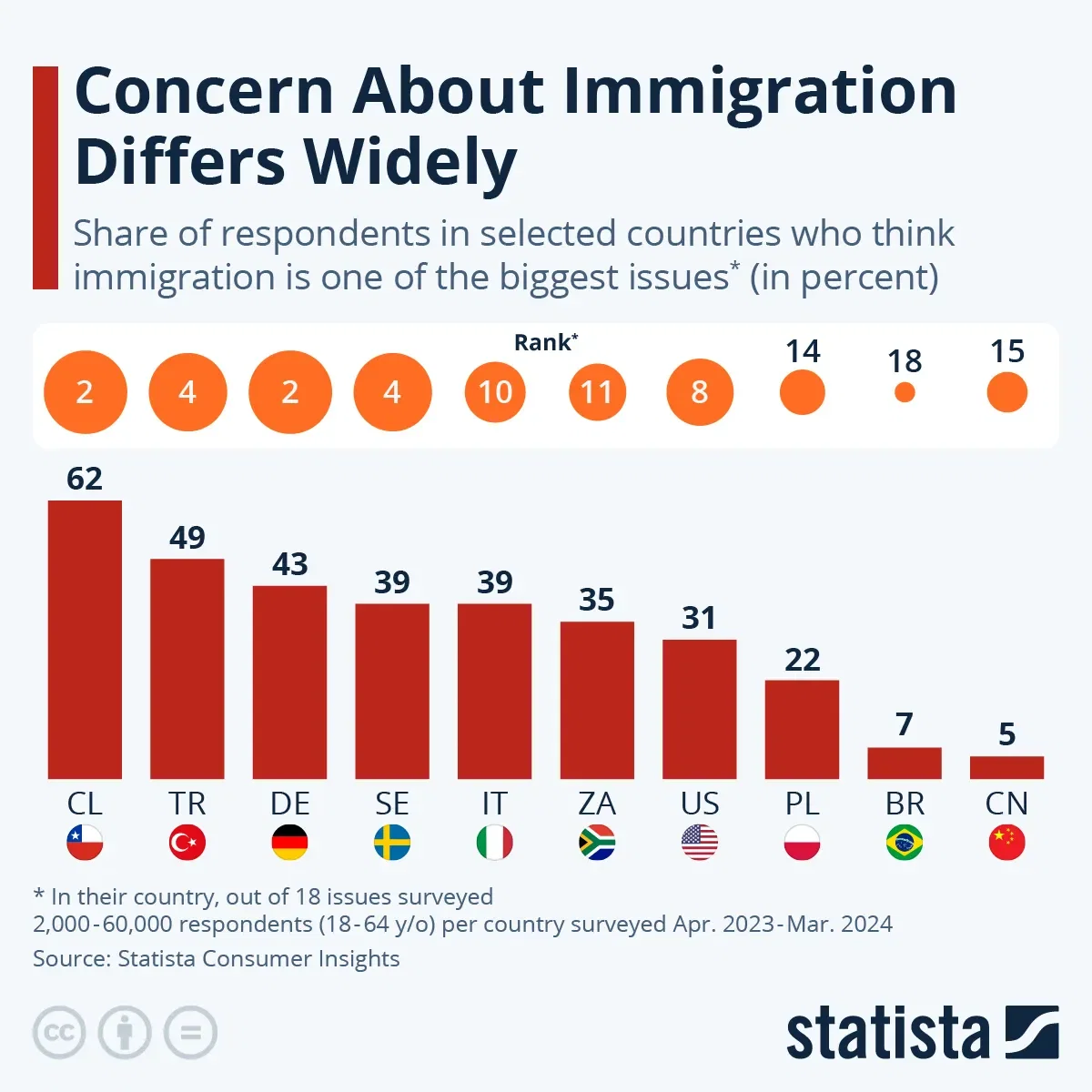Where Data Tells the Story
© Voronoi 2026. All rights reserved.

Concern about immigration differs widely across the globe. While respondents from some countries place it among the biggest issues for their country very frequently, others are more likely to pick different issues.
Across 53 countries surveyed by Statista Consumer Insights between April 2023 and March 2024, immigration was named as a major issue by an average of just 25 percent of respondents presented with 18 topics to choose from - in contrast to the prominent role it sometimes takes up in the media. However, the country-specific answers ranged from just 5 percent in China to 62 percent in Chile, a country that Latin American immigration centers on due to its stability. While there were even more uninteresting topics in China, causing immigration to rank 15 out of 18 for answer frequency, 7 percent of respondents picking immigration as a major issue in Brazil earned it last place there. In Chile, immigration was the most frequently named major issue after crime, while it was in rank 2 after inflation in Germany at 43 percent of respondents naming it. Immigration came in in rank 2 in Switzerland and rank 3 in Austria, showing how in relative terms, German-speaking nations are among those seeing immigration as the most problematic.
For comparison, immigration came in rank 4 of 18 topics in Sweden, the Netherlands and Turkey and just rank 5 in France. Despite just 39 percent naming immigration as a major issue in Sweden, this placed the topic in rank 4 of the most frequently named. In Italy, 39 percent of respondents saying immigration was a major issue only amounted to rank 10, as crime, climate change, the economy and education were seen as more pressing.
In the United States, immigration was named as a major issue by 31 percent - rank 8. The topic was picked even less frequently in Eastern European countries, for example Poland. While known for their at times negative stance on immigration, Eastern Europe also generally receives less of it than its neighbors, with the exception of recent immigrants from Ukraine.